Recent Travel
I will be starting with the light-hearted topic of my travel with this post. In the recent weeks, I decided to do a somewhat spontaneous trip to Nikko, in Tochigi Prefecture for the entire weekend. I wanted a place to go hiking, and I wanted a place to see history, and Nikko did not disappoint on either of those. On my first day, I took an early morning train up into the mountains of Tochigi and started hiking around the Chuzenji area. As someone from Indiana where the tallest point is likely a cornfield somewhere, seeing the colossal mountains, waterfalls, and nature all around was beautiful. I even got to see deer roaming the plains of Senjougahara, and I saw wild monkeys for the first time near Ryuzu Falls. I hiked around 20 miles my first day, going through the mountains, woods, and along the scenic edge of Lake Chuzenji. That night, I got my first experience of going to a private onsen, a hot spring. The ryokan (traditional Japanese inn) that I stayed in also provided a yukata to wear outside the onsen. Side tangent, but I had a funny experience leaving the onsen where I walked past a man in the narrow hallways and said the usual “Sumimasen” (excuse me) to get around him, and got a response of “No worries, bro” in perfect English.
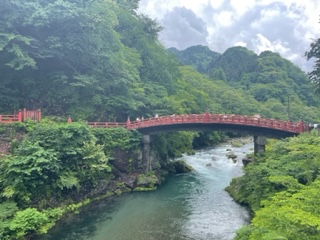
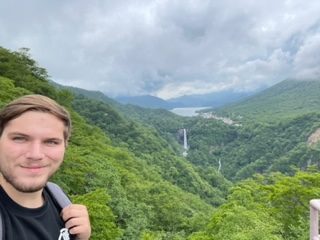
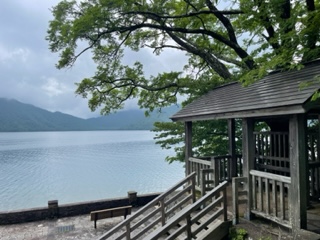
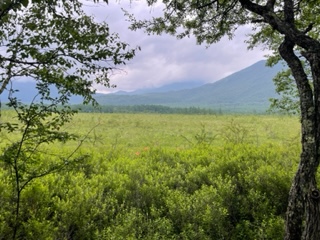
On my second day, I spent more time seeing historic sites. I saw the Jizo statues of Kanmangafuchi Abyss, I saw the beautiful, sprawling masoleum of Toshogu where the famous uniter of Japan and first shogun of the Tokugawa shogunate, Tokugawa Ieyasu, is buried. Interestingly, the famous saying of “See no evil, Hear no evil, Say no evil” accompanied by the three monkeys originates from a mural on the side of a stable at this shrine. Afterwards, I saw Buddhist temple Rinno-ji, the Shinto shrine of Nikko Futarasan, and the mausoleum Taiyuin where Iemitsu, the grandson of Ieyasu, is buried. All in all, I walked another 15 miles the second day.
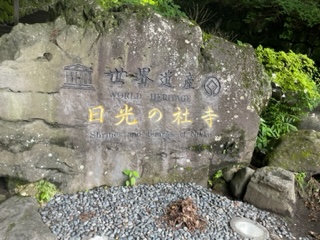
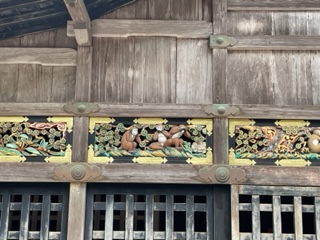
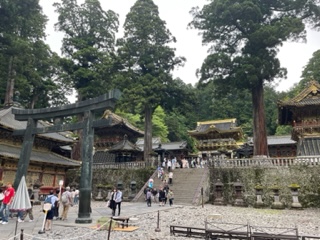
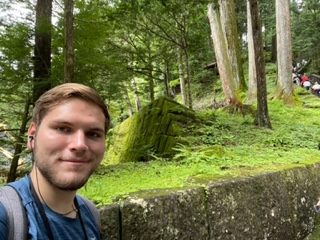
Observations of Work Culture
As someone who loves to frequent the izakayas and yakitori restaurants of Tokyo ( Japanese pubs and grilled chicken places) and as someone who is interning at an office in the corporate heart of the city, I have been exposed to much of the Japanese corporate culture and its intriguing overlap with nightlife. One thing of note is that while many Japanese offices do not have a strict dress code of any sort, one look around Chiyoda-ku at rush hour will show you that there is a strict social sense of conformity in uniform. White shirts with black or gray pants and black dress shoes makes up at least 85% of men’s clothing, and white shirts with black skirts makes up a substantial portion of women’s clothing. Therefore, its very easy to see the waves of Japanese businessmen going to the izakayas and bars after work. In Akasaka, for example, which is near the corporate center, it may be hard to find even a table for food after work hours as they are completely filled by businessmen going out together after a day at the office.
Now, what is interesting is the strong culture of heavy drinking and fraternizing with coworkers any, or every, day of the week. Many times, the audio levels of the restaurant will slowly but surely rise to shouting as they order more and more drinks. While I knew that drinking with coworkers was an aspect of Japanese business, I did not know how prevalent they were, how often it happened, and how intense they get. Again, it is not uncommon to see businessmen blacked-out on the side of the road after midnight in places like Roppongi, near where I live. It goes beyond the American concept of going out for a few drinks, and instead takes the form of what appears to be an extreme form of catharsis.
I have spoken with American and Japanese businessmen in Japan about this topic, and they confirmed my suspicions. The intensity of the Japanese workplace, with an overemphasis on hard work, and the social ostracization of those who are deemed to not be carrying their own weight leads to immense pressure that has to be released in some way. Additionally, mental health care is nearly unheard of here. As opposed to many places in the United States, mental health professionals are scarce and unutilized. When people have stress, anxiety, or worse building up over the course of a career, many Japanese businessmen use heavily drinking on a frequent basis as that release. In the past, I saw the crowds of office workers going to the izakaya as a fun form of coworkers hanging out, but now I have a sense of sadness as I wonder how much pressure they are experiencing and how many have to find their solace in alcohol.
